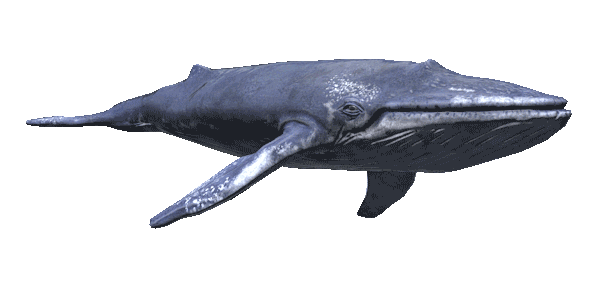year in review
Ports
SOUTHEAST ASIA
The inauguration of Phase 1 of Tuas Port was graced by Singapore’s Prime Minister Lee Hsien Loong on 1 September 2022 and marked a significant milestone in Singapore’s maritime history and its role as a global hub port. The port is envisioned to be the focal point of an extensive and well-connected supply chain and logistics ecosystem when fully completed in the 2040s. Five mega berths became operational at the end of 2022, providing enhanced operating capacity and automation capabilities.
PSA Singapore also launched SlotXpert, a digital marketplace for vessel slot-sourcing to optimise cargo flow and vessel utilisation. SlotXpert enables liners to leverage PSA’s hub synergies to accelerate inventory movement, secure slots on demand and expand connectivity across alliances.
A key highlight of the year was PSA Singapore’s successful testing and commissioning of its first two Automated Quay Cranes (aQCs) at Pasir Panjang Terminal in September. Advanced capabilities – such as fully-automated container operations on prime movers and anti-sway control for fast movements between vessel and wharf – enable the aQCs to achieve automated handling time of 75 seconds. High resolution LiDAR and camera fusion technology installed on the aQCs support productive remote handling at vessel side.
Concurrently working towards the deployment of Autonomous Prime Movers (aPMs) in the near future, PSA Singapore has successfully integrated the aPMs interface with the PSA-designed Fleet Management System, to ensure full orchestration with its Terminal Operations Systems. Vehicle-To-Infrastructure Systems have also been implemented to enable aPMs to interact with traffic lights.
PSA Singapore’s efforts to continue strengthening its operational capability and resilience despite the ongoing macroeconomic challenges in 2022 were recognised by industry stakeholders, when it was named ‘Best Container Terminal – Asia (over 4 million TEUs)’ for the 32nd time at the Asian Freight, Logistics & Supply Chain Awards 2022.
Continuing its commitment to sustainability, PSA Singapore has developed Singapore’s First Energy Storage System (ESS) at Pasir Panjang Terminal to enable more energy efficient port operations. This ESS is part of the Smart Grid Management System which has the potential to improve the energy efficiency of port operations by 2.5% and reduce the port’s carbon footprint by 1,000 tCO2e per annum, the equivalent of removing around 300 cars off the road annually.
During the year, PSA Singapore collaborated closely with its joint venture partners and customers on sustainability initiatives – including with ONE to recycle reefer refrigerant; CMA-CGM to implement new sustainable solutions (such as adoption of PSA’s Opt-E-Arrive digital solution to reduce carbon emissions through the optimisation of bunker consumption); and OOCL on a green pilot trial to reduce trucking distances and carbon footprint.
PSA Singapore also joined ‘The Silk Alliance’, a cross supply-chain maritime partnership dedicated to the development of a fleet-specific fuel transition strategy for container ships operating in Singapore and the wider Asia region, based on the Hub’s First Movers Framework.
Over in Thailand, Eastern Sea Laem Chabang Terminal (ESCO) maintained its service standards in supporting berth-on-arrival and vessel productivity. The terminal was awarded the ‘Certificate of Achievement – Bronze’ by Thailand’s Ministry of Labour on 30 June 2022 for maintaining its Zero Accident status. At LCB Container Terminal 1, new Port+ services were launched including empty containers storage as well as truck optimisation for shuttling of empty containers. Along the Chao Phraya River, Thai Connectivity Terminal handled 159,000 containers, 32% more compared to the year before.
In Indonesia, New Priok Container Terminal 1 (NPCT1) welcomed a new direct Transpacific (TP20) service by Maersk, which provides weekly coverage from Jakarta to China and the US East Coast. NPCT1’s successful upgrade to the new Global Terminal Operating System (GTOS) enhanced its capabilities to support consistently high standards of customer service. In 2022, NPCT1 achieved its highest annual handling volume since operations started in 2016.
In Vietnam, SP-PSA and its stakeholders jointly promoted services for handling alternative cargo, such as malt, wood chips and pellets; as well as Port+ services, such as container staging, and container and commodity storage. The terminal is also working closely with customers, like Kent Logistics, on enhancing on-boarding and operational processes.
In December, SP-PSA announced a new collaboration with SABIC, a leading Saudi chemical manufacturing company, to use SP-PSA’s bonded container yard facility as a forward hub for cargo imports into Vietnam.
NORTHEAST ASIA
As China continued to experience COVID-19 lockdowns in 2022, PSA China and its stakeholders collaborated closely on operational transformation to support a sustainable port ecosystem network and strengthen business resilience. Key foci included optimising costs and enhancing productivity through technology deployments, as well as the sharing of safety technologies across our network.
In line with plans towards a sustainable port and to automate operations over the next few years, Tianjin Port Pacific International Container Terminal converted eight quay cranes and 16 electric Rubber Tyred Gantry (eRTG) cranes to remote operations. Dalian Container Terminal embarked on its smart and green port transformation as part of ongoing efforts to automate its port equipment and future-proof its investments. The project includes automating its entire fleet of 24 rail-mounted gantry cranes (RMG), conducting remote quay crane trials as well as deploying aPMs. Beibu Gulf-PSA International Container Terminal’s (BPCT) automation journey has started with the progressive modification of all RMGs by 2025. The terminal has also installed a battery swapping station to convert prime movers from diesel to electric power.
Developing Port+ solutions as a differentiator for PSA terminals among Beneficial Cargo Owners (BCOs), LYG-PSA Container Terminal (LPCT) collaborated with PSA BDP (Qingdao) to provide Sheng Hong Petrochemical, the largest petrochemical BCO in Lianyungang, with Port+ services for land logistics in the export of Sheng Hong’s products to South Korea and the United States.
PSA Fuzhou Container Terminal (FCT) and PSA Fujian Supply Chain signed a three-year Logistics Service Provider (LSP) agreement with LM Wind Power, a General Electric subsidiary, to develop a 70,000-square meter (sqm) space in FCT Jiangyin Logistics Park. This will serve as one of their main consolidation, storage, assembly and distribution centres for raw materials and manufactured parts, before the final products are exported globally.
LPCT and Fuzhou International Container Terminal leveraged Port+ services, such as general cargo containerisation, to successfully establish a Lianyungang and Fuzhou intermodal corridor for the port groups’ shipping lines. PSA’s terminal network in China has enabled direct domestic intermodal exports between Henan and Fujian provinces of up to 30,000 TEUs annually.
To ensure supply chain resiliency, Guangzhou Container Terminal (GCT) initiated a direct Guangzhou-Hong Kong barging corridor via GCT to complement cross-border land trucking operations disrupted by the COVID-19 pandemic. Guangzhou-PSA Logistics (GPL) added an advanced inventory management (AIM) solution with a key chemical BCO to expand its product offerings and mitigate challenges caused by scheduling changes as well as congestion in upstream and downstream ports.
With China’s domestic growth and dual circular economy strategy, efforts in strengthening our position in its hinterland has increased. In April, China United International Rail Containers Company (CUIRC) launched its 13th railway terminal located in Guangzhou. CUIRC recorded throughput volumes of 5.5 million TEUs in 2022, a 12% increase year-on-year. As the country’s key node in serving international block trains, CUIRC plays an important role in China’s Belt and Road Initiative.
June marked the official launch of Phase 1 of the Sino-Singapore (Chongqing) Multi-Modal Distribution and Connectivity DC Centre (SSCDC). The SSCDC is well positioned as an important West China hub for cargo distribution given its excellent connectivity via multi-modal transport services. As our first physical node in West China, SSCDC complements PSA’s existing port network and enhances our ability to offer Port+ services to our customers. The SSCDC has since handled more than 20,000 TEUs of containers, serving key markets like Southeast Asia and Europe.
In 2022 we saw continued digitalisation across our horizons, with GCT adopting PSA’s Global Portnet system after successful implementations in Guangxi and Fuzhou port communities. PSA NEA also extended its digital connectivity in the Guangxi Beibu Gulf to include the local government, key shipping lines and data exchanges across PSA in Belgium, Korea and Thailand. In Fuzhou, the Digital Road Platform continued to provide integrated digital Port+ truck services to the depot and factories.
PSA China terminals have been adopting technology to enhance our safety environment. More data analytics applications and robotics process automation were rolled out across all terminals. Leveraging digitalisation, BPCT was able to simplify haulier work processes, digitalise the highway toll rebate process and utilise Electronic Data Interchange (EDI) to facilitate communications with the Municipal Highway Authority.
Over in South Korea, MSC subsidiary Terminal Investment Limited Sàrl (TIL) joined PSA as a joint venture partner of Pusan Newport International Terminal (PNIT). With this development, PNIT is envisioned to become a key hub for MSC.
At Incheon Container Terminal, a new work process using the Personal Digital Assistant (PDA) system and supported by monitoring technology, has enabled the terminal’s control centre to take on the role of quay crane supervision.
HMM PSA New-Port Terminal (HPNT) introduced Automatic Dispensers for Container Seals as part of the terminal’s transformation from manual operations to automation. Since end 2022, they can dispense seals for all five major shipping lines calling at HPNT. This innovative application enhances safety as it reduces the need for truck drivers to alight from their cabin.
To expand its reach in the Busan New Port hinterland, PSA Korea is exploring opportunities beyond port logistics. With the development of logistics assets in the hinterland, the company aims to provide customers seamless cargo connectivity from port to landside.
MIDDLE EAST SOUTH ASIA
In 2022, PSA’s MESA region handled 22.7% more containers than the year before; this included growth at inland terminals.
In particular, PSA Mumbai handled 1.6 million TEUs or over 30% more than the year before. The terminal also crossed the 4-million TEU milestone since commencement of operations in 2018. PSA Mumbai launched its Phase 2 construction in 1Q2022 and, upon expected completion in 2025, will be equipped with an additional handling capacity of 2.4 million TEUs annually.
The terminal added five new liner services during the year. To expand its cargo reach beyond the mainstay northwestern interior, PSA Mumbai also introduced short sea connections using barges to transport containers between Goa and Nhava Sheva. This intermodal approach which also utilises railroad infrastructure, allows PSA Mumbai to offer a sustainable transportation option, reduces cargo owners’ logistics costs and benefits global trade.
PSA Mumbai’s higher vessel calling frequency and excellent rail connectivity to 56 inland container depots have facilitated the development of key rail corridors between India’s northern and central regions, helping customers to reduce logistics costs and transit time. The new rail connections are a timely solution as companies are increasingly opting for more environmentally sustainable transport solutions and shifting their cargo to rail transportation to lower carbon emissions.
Our rail multimodal solutions in India, coupled with PSA Ameya’s container freight station services at Nhava Sheva and Mundra, and our extended port storage for Direct Port Delivery (DPD) cargoes at PSA Mumbai and Chennai are key initiatives to move cargo more efficiently.
We launched new round-trip rail solutions for DPD customers to hinterland locations like Delhi NCR, Kolkata, Hyderabad, Bangalore and Cochin. PSA Mumbai made history by flagging off its first-ever rake from Jawaharlal Nehru Port to Cochin; this has not only expanded the Port’s intermodal services and hinterland access, but also strengthened its position as India’s container gateway for trade.
Over in the Middle East, PSA’s Saudi Global Ports (SGP) handled over 2 million TEUs (+16%) in 2022. Additionally, to develop Dammam seaport as the cargo gateway hub in Saudi Arabia, SGP achieved multiple handling milestones, including welcoming four new liner services. The terminal started the year by handling a record 18,021 TEUs on COSCO Shipping Capricorn, setting the record for the highest TEUs handled in a single vessel call in the history of Saudi Arabia’s seaports.
Coinciding with the second anniversary of the consolidation of King Abdulaziz Port Dammam’s (KAPD) first and second container terminals, SGP crossed the 6-million TEU milestone since its commencement of operations in October 2022.
SGP also formally assumed operatorship of the Riyadh Dry Port (RDP) Ecosystem in March 2022. Comprising three rail-linked facilities in Riyadh and Dammam – Riyadh Dry Port, Riyadh Empty Container Yard and Dammam Empty Container Yard – SGP has started to integrate the services of the RDP Ecosystem and KAPD to offer the industry a seamless and efficient logistics network.
EUROPE & MEDITERRANEAN
In November 2022, PSA Belgium started works to future-proof its Europa Terminal and increase the terminal’s annual handling capacity by 700,000 TEUs to 2.4 million TEUs. It involves the deepening of Europa Terminal from 13.5 metres to 16.5 metres by constructing a new quay wall, installing new quay cranes and adopting a new yard stacking layout using automated stacking cranes. When completed, the upgrade will enable Ultra Large Container Vessels (ULCVs) to dock at the terminal and help PSA Belgium reduce its dependence on diesel-powered straddle carriers.
PSA Antwerp’s efforts to provide service excellence were acknowledged when it was named ‘Best Container Terminal in Europe’ at the Asian Freight, Logistics and Supply Chain Awards.
Over in Poland, DCT Gdańsk celebrated its 15th anniversary in October by rebranding itself as ‘Baltic Hub’, to better reflect its ambitions to be the land and sea hub for the region. Baltic Hub started construction of its third deep-sea terminal, T3, in November. With T3’s expected completion in 2025, the new terminal will feature a 717 metre-long and 17.5 metre-deep quay wall, provide an additional 36.5 hectares of operating space and 1.5 million TEUs in annual handling capacity. It will also offer an enriched scope of services to attract new customers, destinations and shipping alliances.
During the year, Baltic Hub also ordered 10 new Semi-Automated RTGs and started the retrofitting of its current fleet of RTGs.
In July, PSA Sines in Portugal inaugurated the first stage completion of its Phase III expansion, lengthening the terminal’s quay by 204 metres to 1,150 metres. When Phase III is fully completed, the terminal will boast a 1,750 metre-long quay and double its annual handling capacity to 4.1 million TEUs; strengthening PSA Sines’ position as one of the main terminals in the region.
In November, PSA Sines automated the optical character recognition function of seven quay cranes. The terminal also electrified two more rail lines that became operational in 1Q2023.
Over in Türkiye, Mersin International Port (MIP) launched ‘Gate Project’ in September – a major infrastructure project to improve traffic conditions around the Mersin Port by allowing trucks to enter and exit the port directly from the highway; as well as upgrading the terminal gates to reduce waiting times.
During the year, MIP’s service excellence received industry acknowledgement with two awards: ‘Port Facility that Handles the Most Cargo’ at the Turkey Maritime Summit and ‘Port Operator of the Year’ at the Logitrans International Transport and Logistics Fair.
In Italy, the PSA Genova-Basel container train Southern Express set new records in September by transporting 1,000 TEUs of containers with a utilisation rate of over 70 percent. In 2022, the service transported a record 10,000 TEUs – about one third more than the previous year.
In August, PSA Italy launched a new procedure for its Verified Gross Mass (VGM) certified weighing service. To ease the process at PSA Genova Pra’, an area of about 500 square metres was equipped with technologically-advanced devices to offer hauliers a rapid weight verification service, and facilitate the simultaneous transmission of VGM data required for the shipping of containers.
PSA Genova Pra’ continued upgrading with the demolishment of its RoRo berth and extension of its existing quay by 180 metres to 1,433 metres. The terminal can now handle three mega vessels simultaneously.
On the side of the Adriatic Sea, PSA Venice achieved 39.1% growth with the handling of over 304,000 TEUs for the year.
THE AMERICAS
On 7 November, PSA’s Exolgan terminal in Buenos Aires welcomed the MV Rio de Janeiro Express container ship. Spanning 335 metres in length and 51 metres in width, it is the largest container vessel to date to call at any Argentinian port.
In Colombia, Sociedad Puerto Industrial Aguadulce (SPIA) handled 506,000 TEUs (+25%). During the year, it also received the Maltese container vessel CMA CGM Argentina. At 366 metres long and 51 metres wide, the 15,720-TEU vessel is the largest container ship to dock at a Colombian port; affirming SPIA’s infrastructure and capability to meet the highest service and safety standards.
SPIA expanded its container freight station warehouse capacity by adding a 1,000-sqm steel storage structure to house oversized cargo. The terminal also built a 3,610-sqm steel warehouse for a Single Inspection Area (SIA), adding 21 inspection bays and supporting the stripping in and out of container cargo to facilitate visual inspections by authorities at ground level.
In Canada, following PSA’s acquisition of Ceres Halifax Inc. in April 2022, PSA Halifax’s operations have expanded to cover two container terminals – Atlantic Hub and Fairview Cove. This has allowed the port to expand its service offerings and transform from a coastal to a global hub port, increasing its competitiveness and operational efficiencies, and boosting Halifax’s position as a port of choice.
Ashcroft Terminal launched an intermodal rail program for import and export customers with direct rail service to and from the Vancouver Port Terminals. The rail terminal also started civil works for a new crossdock warehouse that will have retailer Canadian Tire as its anchor tenant. Its new warehouse is expected to be completed by the end of 2023 and will have a throughput of over 15,000 40-foot long containers that will be transloaded into 53-foot long containers.
In March 2022, the Irish American Business Chamber (IABCN) honoured PSA Penn Terminals (USA), Port of Cork (Ireland) and Independent Container Line with the ‘2022 Ambassador Award’, for their role in strengthening business ties between the USA and Ireland. In 2020, the three entities had launched the only direct container shipping route between the two countries.
It was a celebratory occasion on 30 August for the leadership team, staff, union members, partners and customers of PSA Penn Terminals when it achieved its one millionth TEU movement since joining PSA in September 2019.
PSA MARINE
In 2022, PSA Marine unveiled OHS-Sapphire, a first-of-its-kind digital solution that provides shipmasters with real-time alerts of delivery information when their vessels are alongside Singapore terminals. Available on PSA Marine’s ONEHANDSHAKE™ platform, shipmasters receive timely updates and gain greater visibility over the delivery of vessel supplies, such as spare parts and food provisions. By eliminating the uncertainty of deliveries, ship crew can now organise and utilise their time and resources more efficiently.
PSA Marine received the Green Ship Certificate from the Maritime and Port Authority of Singapore (MPA) in recognition of its support for MPA’s Green Ship Program (MPA GSP). MPA GSP is one of the four programs under MPA’s Maritime Singapore Green Initiative, which identifies ship owners that contribute to reducing fuel consumption and carbon emissions.
PSA Marine Bangladesh also received a Letter of Commendation from MPA at the International Safety@Sea Week 2022 for outstanding contributions to search-and-rescue efforts. The award recognises organisations and individuals for exceptional efforts to ensure safer seas.





























